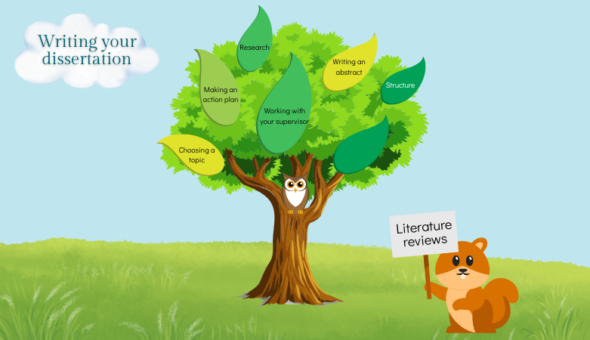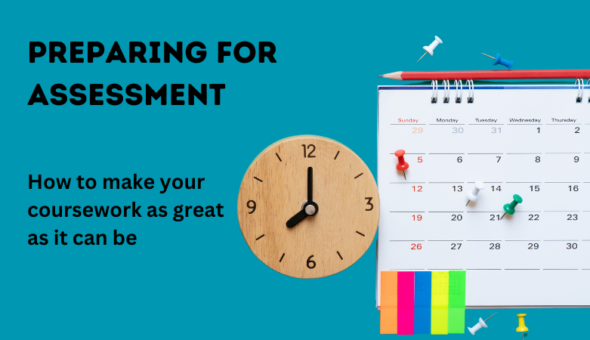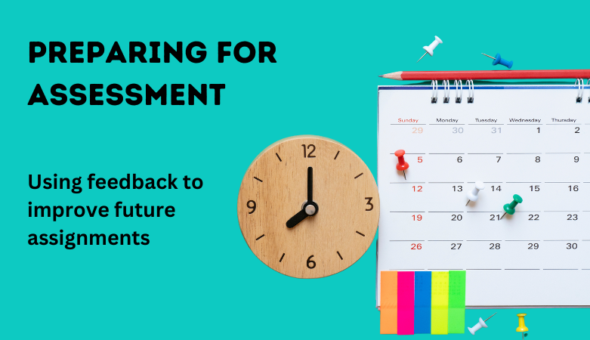Instruction or command words indicate what your tutor wants you to do in your written assignment. It's vital that you understand exactly what these instruction words mean so you can answer all parts of the essay question and provide a complete response.
Here's a list of some of the most common instruction/command words you'll see in essay questions (and examination questions as well), together with an explanation of what they mean.
Describe: Give a detailed account of…
Outline: Give the main features/general principles; don't include minor details.
Explain, account for, interpret: Describe the facts but also give causes and reasons for them. Depending on the context, these words may also suggest that you need to make the possible implications clear as well. For example: 'Explain X and its importance for Y'.
Comment on, criticise, evaluate, critically evaluate, assess: Judge the value of something. But first, analyse, describe and explain. Then go through the arguments for and against, laying out the arguments neutrally until the section where you make your judgement clear. Judgements should be backed by reasons and evidence.
Discuss, consider: The least specific of the instruction words. Decide, first of all, what the main issues are. Then follow the same procedures for Comment on, Criticise, Evaluate, Critically Evaluate and Assess.
Analyse: Break down into component parts. Examine critically or closely.
How far, how true, to what extent: These suggest there are various views on and various aspects to the subject. Outline some of them, evaluate their strengths and weaknesses, explore alternatives and then give your judgement.
Justify: Explain, with evidence, why something is the case, answering the main objections to your view as you go along.
Refute: Give evidence to prove why something is not the case.
Compare, contrast, distinguish, differentiate, relate: All require that you discuss how things are related to each other. Compare suggests you concentrate on similarities, which may lead to a stated preference, the justification of which should be made clear. These words suggest that two situations or ideas can be compared in a number of different ways, or from a variety of viewpoints. Contrast suggests you concentrate on differences.
Define: Write down the precise meaning of a word or phrase. Sometimes several co-existing definitions may be used and, possibly, evaluated.
Illustrate: Make clear and explicit; usually requires the use of carefully chosen examples.
State: Give a concise, clear explanation or account of…
Summarise: Give a concise, clear explanation or account of… presenting the main factors and excluding minor detail or examples (see also Outline).
Trace: Outline or follow the development of something from its initiation or point of origin.
Devise: Think up, work out a plan, solve a problem etc.
Apply (to): Put something to use, show how something can be used in a particular situation.
Identify: Put a name to, list something.
Indicate: Point out. This does not usually involve giving too much detail.
List: Make a list of a number of things. This usually involves simply remembering or finding out a number of things and putting them down one after the other.
Plan: Think about how something is to be done, made, organised, etc.
Report on: Describe what you have seen or done.
Review: Write a report on something.
Specify: Give the details of something.
Work out: Find a solution to a problem.
Adapted from: Coles, M. (1995), A Student’s Guide to Coursework Writing, University of Stirling, Stirling
Responses




nice work.
Good 👍
So wonderful can anyone get the information
Thanks Josphat!
This is a life saver, do you have a youtube channel where you talk about all this stuff? If so I would love to know about it 🙂 Rachelle
Thanks for your comment.
We don't have a YouTube channel but stay tuned for more posts. You will also find additional self-directed learning resources in MySkills.
Quite helpful. I would definitely check this before my next essay.
Thank you, Dan.
Very helpful now I understand how construct my assignments and how to answer exam questions
I have understood it clearly;)
it is very useful for us to understand many instruction word and what we need to write down
There are some define of some words,and I find that there do have many common things for some words,but not all the same.Such as compare, contrast, distinguish, differentiate, relate,they all need people to compare but foucs on different ways.
Very helpful.
Listed most of the words that might be misunderstood by foreign students.
Now I know why my score of writing IELTS test is always 6, I even didn't get the point of what I was supposed to write!
I have already read all of this. And it gave me a brief instruction.
There are varied instruction words in essay questions. It's a good chance for me to have a overview of these main command words because I could response to requirements of questions precisely and without the risk of wandering off the topic.
When i encounter with an essay title with these instruction words above,I should understand exactly what these words mean so that i could know what my tutor would like me to do in the assignments.Also,these words may help me make an outline and read academic articles with percific purposes.
These words are accurate and appropriate. It is really helpful for me to response some assignment questions and I can know the orientation of my answers . I can also use these words to make an outline of my essay. However, in my view, for some instruction words which are confusing and hard to understand, it is better to give an example to help us understand.
It's the first time for me to recognise these instruction words , some of them are really similar with each other.
it is very helpful to my future study.
it will be better to have some examples with it.